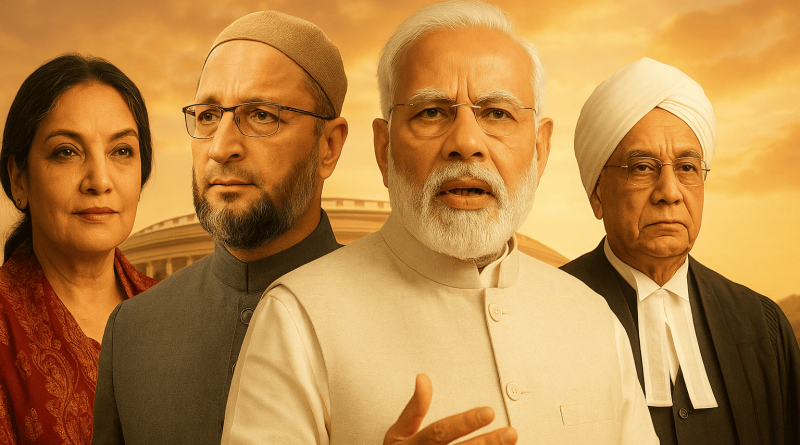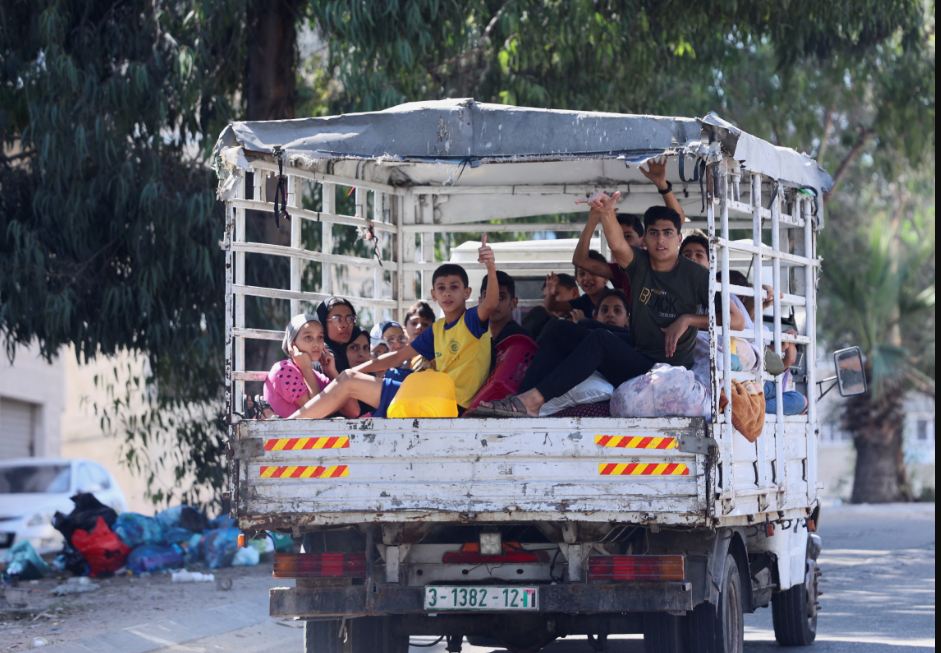OPINION: Beyond Identity — Indian Muslims Driving Law, Policy, and Progress
Indian Muslims are not merely participants in politics and law—they are architects of inclusive governance and champions of constitutional values.
India’s democracy thrives on diversity, and its strength lies in the active participation of all communities in governance. Indian Muslims have historically played a vital political and legal role in shaping policies, laws, and reforms that safeguard vulnerable populations. Their contributions, whether as legislators, policymakers, or jurists, reflect a commitment to constitutional values, social justice, and inclusive development.
In today’s India, Muslim leaders and legal experts are not only defending minority interests but are actively strengthening national democracy and promoting socio-economic progress.
Historical Political Contributions
From the independence movement onward, Indian Muslims have been central to nation-building. Leaders like Maulana Abul Kalam Azad championed universal education, minority rights, and secular governance, ensuring India’s Constitution enshrined equality for all.
Dr. Zakir Hussain, the country’s third President, emphasized education and legal awareness as pillars of a just society. Their political foresight helped embed protections for vulnerable communities into the country’s foundational laws, ensuring that governance remains inclusive and forward-looking.
Today, Muslim politicians across the nation continue to influence legislative priorities that protect marginalized groups. Participation in parliamentary committees and state assemblies has led to strengthened minority welfare programs, targeted social schemes, and legal reforms.
For instance, Muslim Members of Parliament (MPs) have advocated for amendments to the Protection of Children from Sexual Offences (POCSO) Act, improvements in personal law boards, and better implementation of state minority commissions. These efforts ensure that policy-making is inclusive, equitable, and aligned with constitutional guarantees.
Judicial Leadership and Legal Innovation
Indian Muslims have also significantly shaped the judiciary. Justice Mohammad Hidayatullah, India’s first Muslim Chief Justice, delivered landmark rulings that upheld civil liberties, reinforced judicial independence, and ensured the law protected the rights of the vulnerable.
Contemporary Muslim jurists continue to champion legal reforms in areas like gender justice, minority rights, and social welfare, highlighting how judicial activism and political participation can work together to create systemic change.
Policy Innovations and Governance
In modern India, Muslim leaders are at the forefront of initiatives that combine law, governance, and social justice. Reforms in Waqf property management, digitization of court processes, and community legal aid programs illustrate a proactive approach to governance.
These measures protect community assets, ensure transparency, and provide vulnerable groups access to justice, showcasing how minority leadership can drive policy innovations benefiting the nation as a whole.
The active engagement of Muslims in law and politics fosters social cohesion and strengthens India’s democratic institutions. By participating in policymaking, minority leaders demonstrate that inclusive governance leads to stronger nation-building.
Programs like legal literacy drives, minority welfare legislation, and advocacy for equitable education opportunities illustrate a politically engaged community that reinforces national unity while advancing social justice.
Case Studies of Political Leadership
Shabana Azmi has been a prominent advocate for legal and social reforms, using her position on advisory committees and social reform boards to influence policy frameworks on gender justice, minority welfare, and arts education. Her contributions highlight how cultural and political engagement can work together to advance social equity and protect vulnerable communities.
Similarly, the All India Majlis-e-Ittehad-ul-Muslimeen (AIMIM) has played a notable role in shaping state-level policies. Its representatives in various assemblies have pushed for reforms in urban development, education, and welfare schemes, ensuring that minority voices are not only heard but also integrated into the broader legislative agenda. By doing so, the party has positioned itself as a constructive force in the political process, focusing on development while addressing community concerns.
Muslim Members of Parliament have also made significant contributions through their active participation in parliamentary committees. By drafting and advocating for amendments to welfare and protection laws, they have demonstrated a commitment to policy-level engagement that safeguards vulnerable groups and reinforces India’s legal framework. Their efforts underscore the importance of inclusive governance in building a stronger, more equitable democracy.
The Bottom Line
Indian Muslims are not merely participants in politics and law—they are architects of inclusive governance and champions of constitutional values. Through legislative advocacy, judicial innovation, and policy leadership, they continue to protect vulnerable communities while strengthening democracy. Their contributions highlight a fundamental truth: minority representation enhances governance, ensures social justice, and builds a stronger, more cohesive nation.
In a time when India faces complex social and political challenges, the role of Muslim leaders and jurists is essential for balancing tradition with modern governance, protecting citizens’ rights, and ensuring that democracy works for everyone. Their leadership demonstrates that inclusive politics and proactive legal reforms are the pillars of a progressive, united India.
Disclaimer: Views expressed by writers in this section are their own and do not reflect Milli Chronicle’s point-of-view.



